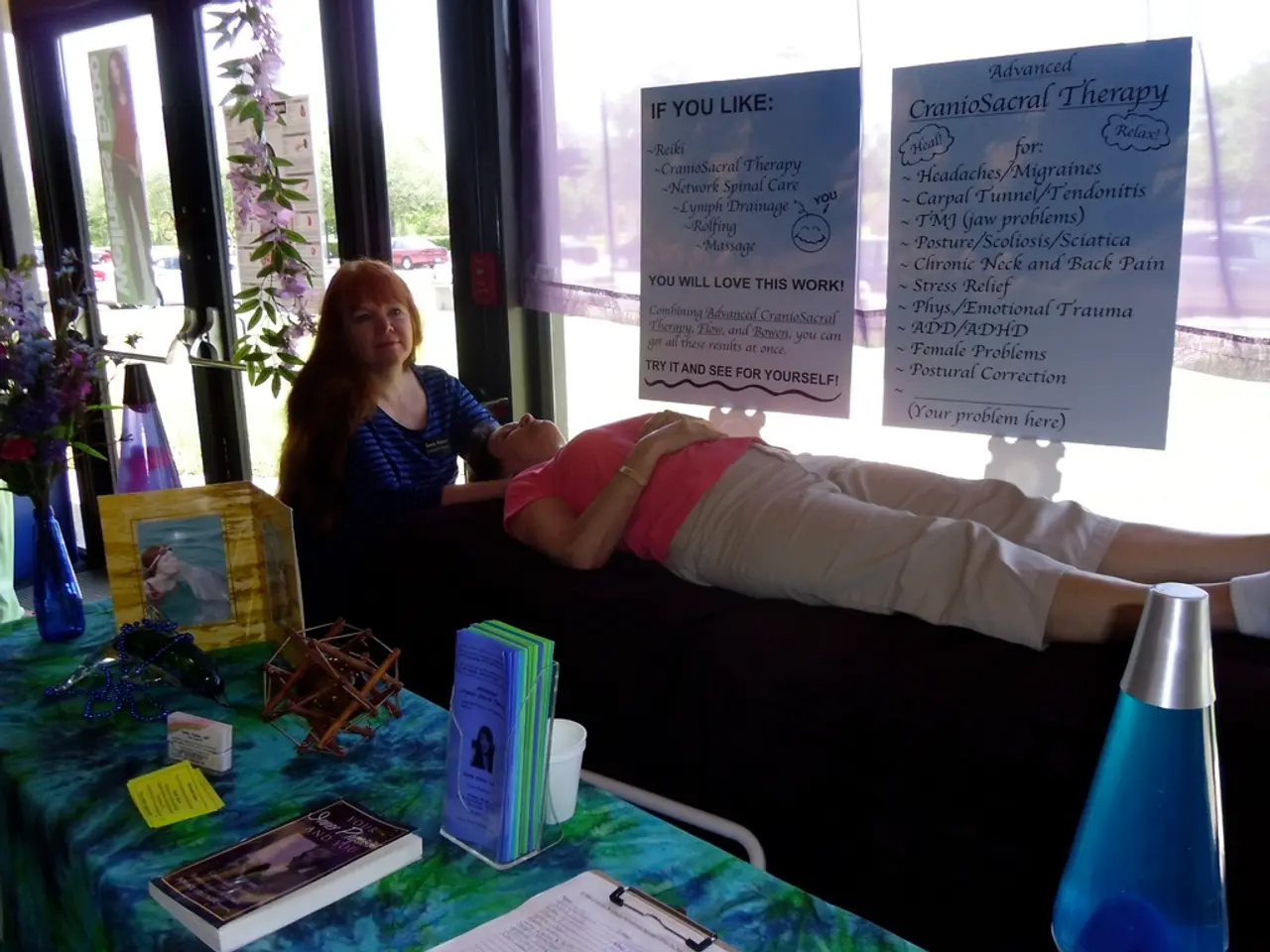Unraveling the Therapeutic Potential of Forgiveness: Releasing Past wrongs and Welcoming Affection
Forgiveness: A Key to Emotional and Physical Healing
Forgiveness is more than just a simple act - it is a powerful tool that can transform lives, both emotionally and physically. By choosing to forgive, we open the door to love, emotional freedom, and self-care.
This process can significantly improve our overall well-being, including mental and physical health. Forgiveness creates space for love to flourish, fuelling the process of healing. It promotes emotional resilience, reducing stress, improving mental clarity, and enhancing our ability to cope with adversity.
True forgiveness is not about excusing or forgetting the hurt done, but about releasing the grip that the past has on us. It begins with a decision to no longer allow anger, bitterness, or hurt to dictate our lives. Acknowledging the hurt is the first step in embracing forgiveness.
The act of forgiving oneself is equally important. It is an act of self-compassion, letting go of the need for perfection, and embracing the beautiful, flawed person that we are. Self-forgiveness is crucial in the healing process, as it involves acknowledging that we are worthy of love and compassion, both from others and from ourselves.
Unforgiven wounds, such as betrayal, broken relationships, or personal regrets, can linger like an anchor around our hearts, affecting our self-perception, worldview, and relationships. The liberation of letting go of past hurts offers a transformative aspect, providing the freedom to move forward with a clean slate, embracing the present and the future without the burden of resentment.
Practicing forgiveness can rewire neural pathways in our brain, making it easier to manage negative emotions over time. Holding grudges activates the amyggdala (fear and anger center), whereas forgiveness activates the prefrontal cortex, which regulates emotions and promotes calmness and rational thinking.
The process of forgiveness generally includes recognising the hurt, acknowledging our emotions, making a conscious choice to forgive, releasing negative emotions through empathy or understanding, and experiencing the emotional liberation and improved mental well-being that comes from forgiveness.
Additional supportive steps include distinguishing forgiveness from reconciliation, setting healthy boundaries, and practicing self-compassion. Structured approaches like the REACH model or Enright’s 20-step forgiveness method offer frameworks for working through the process.
It's important to remember that letting go of expectations is crucial in the forgiveness process. Forgiveness doesn't require the other person to apologize for the healing process to begin. Forgiveness promotes empathy, encouraging us to see things from the other person's perspective, which can lead to greater understanding and deeper connections.
In summary, forgiveness is a proactive, empowering choice that facilitates emotional healing and physical health benefits by freeing individuals from the harmful effects of resentment and enabling them to build resilience and peace within themselves. Whether we are forgiving others or ourselves, the journey towards healing begins with a single step - the decision to forgive.
[1] Lopez, S. J. (2013). Forgiveness therapy: An evidence-based approach to healing the hurt. New York: Guilford Press. [2] Worthington, E. L. (2006). Forgiveness and mental health: The benefits of forgiving and the costs of unforgiveness. Clinical Psychology Review, 26(6), 825-841. [3] Worthington, E. L., & Wade, N. G. (2006). Forgiveness and health: Mechanisms linking forgiveness to health outcomes. Health Psychology, 25(4), 368-376. [4] Enright, R. M. (2001). Forgiveness: Theory, research, and practice. Mahwah, NJ: Lawrence Erlbaum Associates. [5] McCullough, M. E., Pargament, C. I., & Thoresen, C. E. (2000). The psychology of forgiveness. American Psychologist, 55(7), 474-481.
- Embracing forgiveness not only improves our mental health, but also contributes to our physical fitness, as it promotes emotional resilience, reduces stress, and enhances our ability to cope with adversity.
- The practice of forgiveness can have profound effects on our overall well-being, including health-and-wellness and personal-growth, as it aids in the release of negative emotions and fosters mental clarity.
- In addition to its emotional benefits, forgiveness plays a significant role in our lifestyle, as it leads to improved relationships and a better understanding of ourselves and others.
- Education-and-self-development is enhanced through the process of forgiveness, as we learn to see things from others' perspectives, fostering empathy and deeper connections.
- The act of self-forgiveness is a crucial step in the journey towards mental-health and personal-growth, as it involves acknowledging our flaws, letting go of the need for perfection, and embracing our true selves with compassion.




